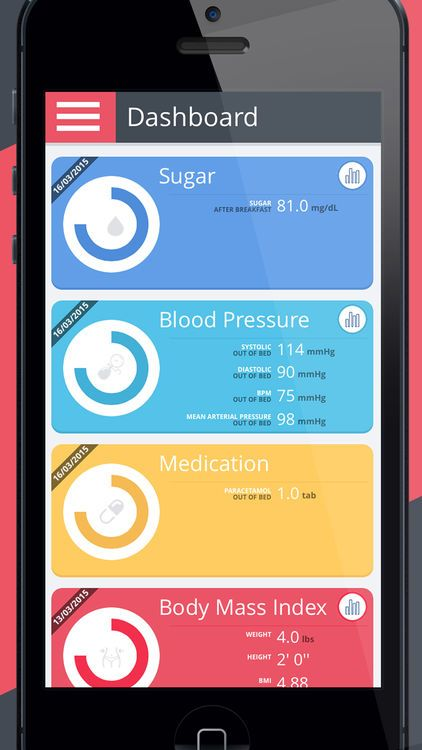In the rapidly evolving field of personal healthcare apps, users now have the advantage of smart technological solutions right at their fingertips. These digital health solutions are transforming how we approach our wellbeing, particularly through enhanced medication adherence and tailored support systems. With advances in AI in healthcare, these applications are not only designed to track daily activities but also provide personalized assistance based on individual health needs. They serve as virtual health coaches, especially for vulnerable groups such as cancer patients, who face significant medication challenges. By leveraging innovative algorithms and engaging features, personal healthcare apps empower users to manage their health effectively, promoting better outcomes and an enhanced quality of life.
Personal health management tools are becoming essential in today’s digital age, enabling users to take charge of their wellness journeys. These applications, specifically designed to support individual health needs, often incorporate cutting-edge technology to facilitate effective medication adherence and foster positive behavioral changes. Many of these tools employ machine learning algorithms to provide real-time personalization, addressing the unique challenges faced by users, particularly those dealing with chronic conditions like cancer. As part of the broader landscape of healthcare technology, these digital solutions not only streamline the management of complex health regimens but also cultivate a stronger sense of community and support. Thus, personalized digital health applications are at the forefront of transforming traditional healthcare paradigms.
The Rise of Personal Healthcare Apps in Cancer Support
Personal healthcare apps are revolutionizing the way we approach cancer support. These innovative digital health solutions not only provide information but also integrate features that enhance medication adherence for patients. For instance, apps specifically designed for cancer patients undergoing stem cell transplants can utilize reinforcement learning algorithms to track and remind individuals about their medication regimen, ultimately addressing the alarming statistic that over 70% of patients often neglect their prescribed treatments. By creating a platform that focuses on monitoring and behavioral prompts, these applications can significantly improve the recovery experience for users.
Moreover, personal healthcare apps tailored for cancer support offer interactive features that foster a sense of community. Patients often benefit from enhanced social networks, which can help them share their experiences and cope with the psychological aspects of their treatment. These functionalities are particularly vital given that the journey can be isolating and emotionally taxing. By providing not just informational but also psychosocial support, these apps can improve adherence to medications and overall health outcomes.
AI in Healthcare: Enhancing Patient Support
Artificial intelligence (AI) is becoming increasingly integral to healthcare technology, particularly in developing personalized support systems. The use of AI in healthcare enables apps to adapt their interactions with users based on past behaviors, setting a new standard in patient engagement. For example, a mobile app designed for stem cell transplant patients can track medication adherence and modify its reminders to cater to the user’s unique circumstances. By leveraging real-time data, this technology enhances the support framework, ensuring patients receive relevant and timely assistance.
Furthermore, AI-driven applications such as MiWaves show promise in managing other health issues, such as cannabis use. By continuously learning from user interactions, these tools can optimize their functionality to assist users in reducing consumption over time. Such advancements reflect a shift towards more intelligent healthcare options that are not only reactive but also predictive, paving the way for a future where digital health solutions can intuitively understand and respond to the needs of users.
Medication Adherence: The Role of Technology
Medication adherence remains a significant challenge in patient care, particularly for those dealing with chronic conditions like cancer. Technologies designed to enhance adherence leverage innovative approaches, such as integrating educational resources, reminders, and even gamified elements to engage users better. For instance, by offering patient-centered applications that adjust notifications based on individual responses and tendencies, healthcare providers can improve treatment outcomes and empower patients to take control of their health.
Moreover, the importance of caregiver involvement is highlighted through digital health solutions that facilitate communication between patients and their support networks. Applications can send alerts not only to patients but also to caregivers, ensuring that everyone involved in a patient’s care is informed and ready to provide assistance. By fostering stronger relationships and communication, these applications can transform the caregiving dynamic and enhance medication adherence through collaborative efforts.
Digital Health Solutions: Transforming Patient Care
The advent of digital health solutions marks a significant transformation in patient care. These applications provide more than just traditional health tracking; they offer customized experiences tailored to individual patient needs. For cancer patients, the integration of reinforcement learning algorithms enables these apps to evolve based on the feedback and progress of users, resulting in a much more effective support system. This customization is particularly crucial in enhancing user engagement and adherence to therapeutic regimens.
Digital health solutions also create an avenue for real-time feedback and intervention that conventional methods cannot achieve. For patients recovering from severe treatments like stem cell transplants, immediate access to personalized support can make a profound difference in their recovery journey. By bridging the gap between technology and healthcare, these solutions pave the way for enhanced patient autonomy and improved health outcomes.
Social Engagement through Healthcare Apps
Healthcare applications are now incorporating social engagement features to enhance user experience and support. For patients dealing with challenging health conditions, such as those undergoing cancer treatments, having access to communities for sharing experiences can play a pivotal role in mental wellness. This aspect of app development recognizes the need for emotional support alongside physical health management, making it an essential component of modern healthcare technology.
By fostering connections between users and their caregivers, these apps enable collaborative goal-setting and progress tracking. For example, the word-guessing game in certain cancer support apps not only entertains but also strengthens communication between patients and their caregivers. Such interactions can alleviate feelings of isolation and enhance the emotional resilience of patients, thereby improving overall health experiences.
Reinforcement Learning: The Future of Personal Healthcare Apps
Reinforcement learning is a game-changing component in the development of personal healthcare apps. This technology allows applications to learn from users’ interactions, adapting their responses to provide the best-suited advice and reminders. By employing a data-driven approach, these apps continually refine their algorithms to maximize their effectiveness in supporting users through their health challenges, such as medication adherence and lifestyle modifications.
As reinforcement learning evolves, its application in healthcare technology stands to reshape treatment paradigms. By transitioning from generic advice to highly personalized interventions, these apps will empower users to adhere to their treatment plans and make better health decisions. The future of healthcare may lie in these smart, adaptive apps that serve as personal health coaches, guiding patients through complex treatment journeys.
The Impact of Mobile Health Trends on Patient Recovery
Mobile health trends play a pivotal role in patient recovery by enhancing access to resources and support systems. Patients recovering from significant medical procedures benefit from on-the-go information and reminders, which can be crucial for effective recovery. As healthcare technology continues to integrate mobile platforms, especially in oncology, patients will be more empowered to manage their health outcomes proactively.
Moreover, the increasing acceptance of mobile health trends indicates that patients are looking for convenient and efficient ways to interact with their care providers. Applications designed for easy communication and progress monitoring can increase adherence and satisfaction levels. By making recovery as seamless as possible, mobile health trends are not just supporting patients physically but are also reshaping their emotional and mental health landscapes.
Engagement Strategies in Digital Health
Engagement strategies in digital health are critical to the efficacy of personal healthcare apps. By focusing on user interaction and feedback, developers can ensure that their applications are not only functional but also resonate with users’ needs and preferences. Effective engagement strategies include personalized messaging, gamification elements, and community-building features that enhance the user experience, promoting sustained interaction and adherence.
Interestingly, the success of these strategies often hinges on the balance between technological innovation and human-centered design. By prioritizing user experience in the development of healthcare technology, apps can foster deeper connections between users and their health management tools. As a result, patients are more likely to consistently rely on these applications, leading to improved health management and outcomes.
Future Prospects: AI and Healthcare Integration
The future prospects of AI integration into healthcare are incredibly promising, as technological advancements continue to shape the landscape of patient care. With the ability to analyze vast amounts of data, AI can improve decision-making processes for both patients and healthcare providers. For example, deploying AI-powered apps that deliver personalized reminders or educational materials based on user-specific data can significantly enhance the effectiveness of treatment protocols.
Furthermore, as AI technologies evolve, they will become indispensable tools that enhance collaboration between patients and healthcare practitioners. By facilitating real-time dialogue and providing actionable insights, AI can empower patients to take charge of their health journeys while supporting providers in delivering tailored care. This symbiotic relationship between technology and healthcare has the potential to reimagine patient engagement and streamline processes, heralding a new era of medical practice.
Frequently Asked Questions
What role do personal healthcare apps play in medication adherence for cancer patients?
Personal healthcare apps are crucial in improving medication adherence among cancer patients. By utilizing advanced algorithms and AI in healthcare, these apps provide real-time support and reminders tailored to individual needs, significantly increasing the likelihood that patients adhere to their medication regimens.
How do digital health solutions assist cancer patients during recovery?
Digital health solutions, such as personal healthcare apps specifically designed for cancer patients, offer customized support throughout their recovery. These apps can track medication schedules, provide educational resources, and facilitate communication with caregivers, making the recovery process more manageable.
What is ‘just-in-time adaptive intervention’ in healthcare technology?
‘Just-in-time adaptive intervention’ is a method employed by healthcare technology, particularly in personal healthcare apps, to deliver support precisely when users need it. This approach uses AI to adapt interventions based on real-time feedback, ensuring that the support is relevant and timely, which is vital for patients managing complex health issues.
Can AI in healthcare improve the effectiveness of support apps for patients?
Yes, AI in healthcare significantly enhances the effectiveness of support apps for patients. By learning from user interactions, these apps can tailor their content and timing to maximize engagement and improve outcomes, ultimately leading to better health management.
What features do cancer support apps provide to improve patient outcomes?
Cancer support apps typically include features like medication reminders, mood tracking, educational content, and social support networks. By leveraging healthcare technology, these apps ensure that patients receive the necessary assistance and information to navigate their treatment journey effectively.
How does reinforcement learning impact the development of personal healthcare apps?
Reinforcement learning impacts the development of personal healthcare apps by enabling them to learn from user behaviors and interactions. This leads to a more personalized experience, as the app adapts its recommendations and prompts based on what has been effective in the past, thereby enhancing user engagement and adherence.
What benefits do caregivers gain from using personal healthcare apps?
Caregivers benefit from using personal healthcare apps as these tools help them manage their loved ones’ medication schedules, track health progress, and communicate easily with healthcare providers. This support reduces caregiver burden and ensures that patients receive timely and appropriate care.
Are personal healthcare apps effective for reminding patients about medication schedules?
Yes, personal healthcare apps have proven effective in reminding patients about their medication schedules. By using AI and machine learning, these apps can adapt reminder timings and messages based on user behavior, leading to enhanced adherence and better health outcomes.
What challenges do developers face when creating personal healthcare apps?
Developers face challenges such as data accuracy, ensuring user engagement, and creating intuitive interfaces when developing personal healthcare apps. Additionally, overcoming technical issues like software glitches and integrating feedback effectively into the algorithm remain critical for optimal performance.
How do personal healthcare apps promote collaboration between patients and caregivers?
Personal healthcare apps promote collaboration between patients and caregivers by providing shared platforms for communication and support. Features such as shared goals, progress tracking, and motivational prompts encourage active participation from both parties, fostering a stronger support network.
| Key Point | Details |
|---|---|
| Personal Healthcare Apps | Apps designed to support health tracking and medication adherence, particularly for cancer patients. |
| Reinforcement Learning Algorithms | Algorithms that adapt and learn from user interactions to provide personalized support. |
| Real-Time Personalization | These apps adjust recommendations and support based on the user’s current needs and context. |
| Just-in-Time Adaptive Intervention | Interventions are provided precisely when they are needed, enhancing user engagement. |
| Collaborative Development | The development involves partnerships with medical professionals and behavioral scientists. |
| Gamification | Apps incorporate games (like word-guessing) to bolster support between patients and caregivers. |
| Pilot Programs | Ongoing clinical trials to test effectiveness of these personalized approaches. |
| Broader Applications | The technology is being adapted for other health issues, including cannabis use and dental hygiene. |
Summary
Personal healthcare apps represent a revolutionary approach to health management, especially for individuals facing significant health challenges like cancer. These applications leverage advanced algorithms to provide tailored support, ensuring that patients receive the right assistance at the right moment. By focusing on real-time personalization and user engagement, personal healthcare apps not only help patients adhere to their treatment regimens but also improve their overall health outcomes. The incorporation of gamification and collaborative features further enhances the patient-caregiver relationship, making these digital tools essential in modern healthcare.



